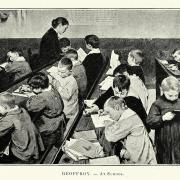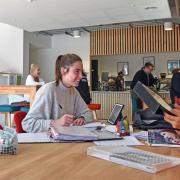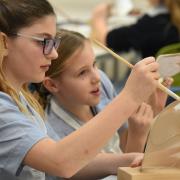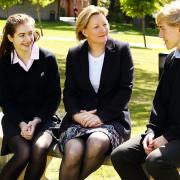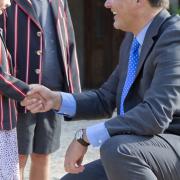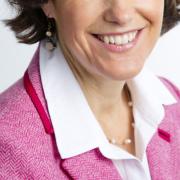Angharad Holloway, head of Talbot Heath School, reflects on a trip to New York which opened her eyes to the empowering role girls’ education plays in communities around the world
Head teachers can often find themselves bogged down in regulations and paperwork, a fact that can narrow one’s perspective and vision. The opportunity to attend the first Global Forum on Girls’ Education in New York suddenly opened my eyes to a world of possibilities. At the event 900 educators, all committed to offering girls the highest quality of education, spent three days presenting, talking and discussing the priorities for girls’ education. I realised that I, and Talbot Heath School, were part of a dynamic, global community, united in our passion for offering girls education that would inspire them to embark on future pathways, with no limits to their aspirations.
The conference started with a powerful film, consisting of footage submitted by girls across the globe, including Talbot Heath pupils (see the film on our school website), stating why all girls deserved an education and what their education meant to them personally. It reinforced how far we had come globally while at the same time highlighting the fact that millions of girls are still denied an education as a result of their gender. The girls represented by the schools at the event feel a strong sense of duty to speak up for their peers around the globe who have no voice and are yet to be guaranteed education as a fundamental right.
Gloria Steinem, writer and campaigner, spoke of the fact that we find ourselves at a time of maximum hope yet maximum danger: women have never had such a wealth of opportunities, yet violence against women, according to United Nations (UN) data, is at an all time high. Arianna Huffington, founder of the Huffington Post, urged educators to foster a new definition of success among our students, one that focuses on wellbeing and wisdom rather than money and power. She questioned how we had reached a point where burnout was viewed as an unavoidable aspect of success.
The most inspirational speaker, however, was Kakenya Ntaiya - married off by her family at the age of five, she was subjected to violence and FGM, before convincing the community elders to allow her to attend school and university. Her commitment to changing the world by changing the lives of girls in her native Kenya, one at a time, was tremendously powerful.
Hers was a sobering reminder that equality for women is still in its infancy in large parts of the world: 15 million girls are likely to be married before the age of 12 in 2016 and 3 million are at risk of FGM. By uniting as a global community, committed to equality of education, girls’ schools can play their part in ensuring that gender equality becomes a reality, regardless of country or culture.
As I stood in the UN headquarters, reading the Universal Declaration of Human Rights, I vowed to return to Dorset imbued with a new determination to embed civil rights and global citizenship even more firmly within education.
READ ON
• Meet the head: Jenny Dwyer at Sherborne Girls - Jenny Dwyer, head at Sherborne Girls, believes that her girls’ great successes are due to studying in a happy, inclusive and kind environment
• Meet the head: Dr Dominic Luckett at Sherborne School - As the new headmaster at Sherborne School, Dr Dominic Luckett is looking forward to inspiring his pupils to even greater success and, when time allows, walking or paragliding on the Dorset hills




